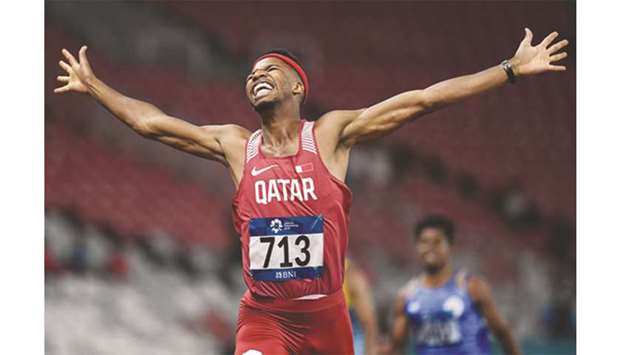“The gun goes off and everything changes... the world changes... and nothing else really matters.”
— Patti Sue Plummer, former US distance runner and two-time Olympian
The stage is set, the participants ready. For about 10 days now, starting tomorrow, Qatar will be the hub of the athletics world where only sweat and toil count.
Runners and walkers will dash towards the finish line, jumpers and throwers will aim to go higher and longer knowing full well only three will be rewarded. They will reap the riches of stardom while the unsuccessful ones will be left to curse their luck, or circumstances.
For some of them, it could be even curtains as far as their careers are concerned, barely ending up as footnotes in history. But such is the romance of sport that even that is a credit.
Not for nothing is athletics called the mother of all sports. Long before games like football, baseball, cricket and golf emerged in their primitive forms, hardy men dating back to almost 3000 BC in Greece and Egypt were throwing discuses and javelins, running and jumping for the glory of their kings, nations and tribes.
Cities in fact competed to offer the biggest prizes to successful athletes, much like the modern age when corporates compete to get a world-beater to endorse their brands in exchange for millions of dollars.
The word ‘athletics’ is derived from the Greek word ‘athlon’, which itself means ‘prize’ but that doesn’t mean it’s only the riches that matter to the winners. The honour of winning a medal for their country supersedes everything else. National pride comes first, the riches that follow merely incidental. There is nothing to grudge here.
But nothing comes your way if you are not backed by hard work, aided, of course, by sports sciences and devoted coaches who die a thousand deaths in a matter of a few seconds when their wards are at it.
It’s not without reason that Qatar’s reigning world champion high jumper Mutaz Barshim considers his Polish coach, Stanislaw Szczyrba, a father figure.
“He is more than a coach, we are like father and son,” Barshim has been quoted as saying. The Qatari superstar also lives at his coach’s house in Warsaw where he spends part of the summer training, and also in Sweden so that he can fly to competitions in Europe without wasting much of his time.
Abderrahman Samba, who is tipped to win a medal in the 400m hurdles, also has a similar relationship with his South African coach, Hennie Kotze.
Kotze is regarded as one of the greatest hurdles coaches in the world, but the genial and humble South African considers himself lucky to have Samba as his student.
“He is really dedicated and disciplined and has a fantastic temperament. It’s an honour for me to have him under my wings,” Kotze told Gulf Times, during the Asian Games in Jakarta last year, where Samba won gold.
“The thing about him is he takes the same discipline and dedication to his life outside of athletics. To his personal life, his religion, he is totally committed. Lucky for me that he is that way. It helps me a lot in my work and it helps him run very fast!”
Samba returned the compliment, saying, “He is the best coach in the world.” There’s little doubt about the level of admiration they have for each other.
Samba has not raced much this season, preferring to concentrate his energies on the World Championships where he is targeting gold and a possible world record in the 400m hurdles despite tough competition from defending champion Karsten Warholm of Norway and rising star Rai Benjamin of the US.
But as they say nothing is impossible in sport, and Samba and Barshim, who has only recently recovered from a serious ankle injury, can take inspiration from the wonderful words of George A. Sheehan, the American runner and author best known for his his book, Running & Being: The Total Experience, which became a New York Times best-seller.
“It’s very hard in the beginning to understand that the whole idea is not to beat the other runners,” Sheehan said.
“Eventually you learn that the competition is against the little voice inside you that wants you to quit.”
Some of life’s best lessons surely come from sport.

Qatar’s Abderrahman Samba is a huge medal prospect in the men’s 400m hurdles event.
